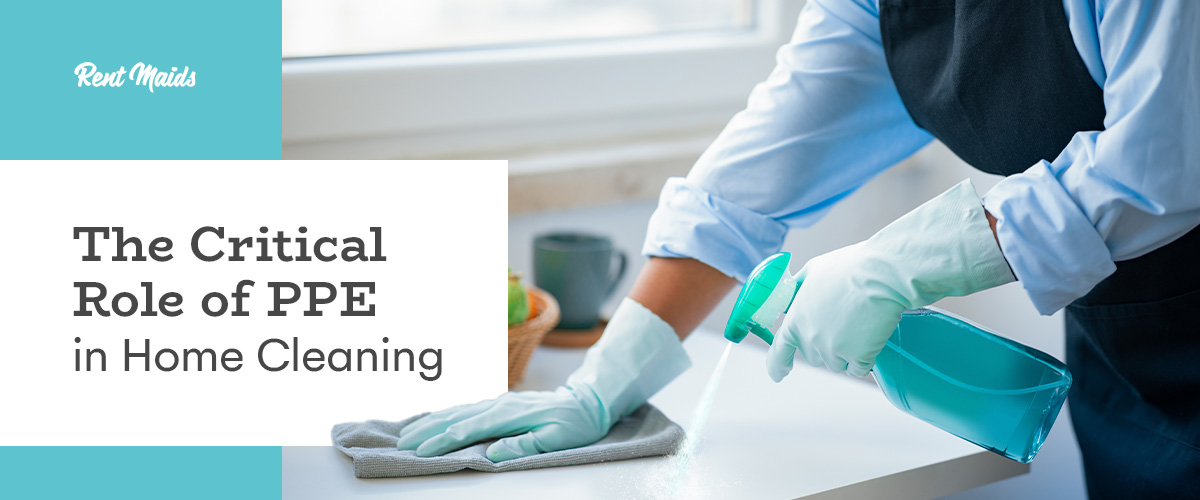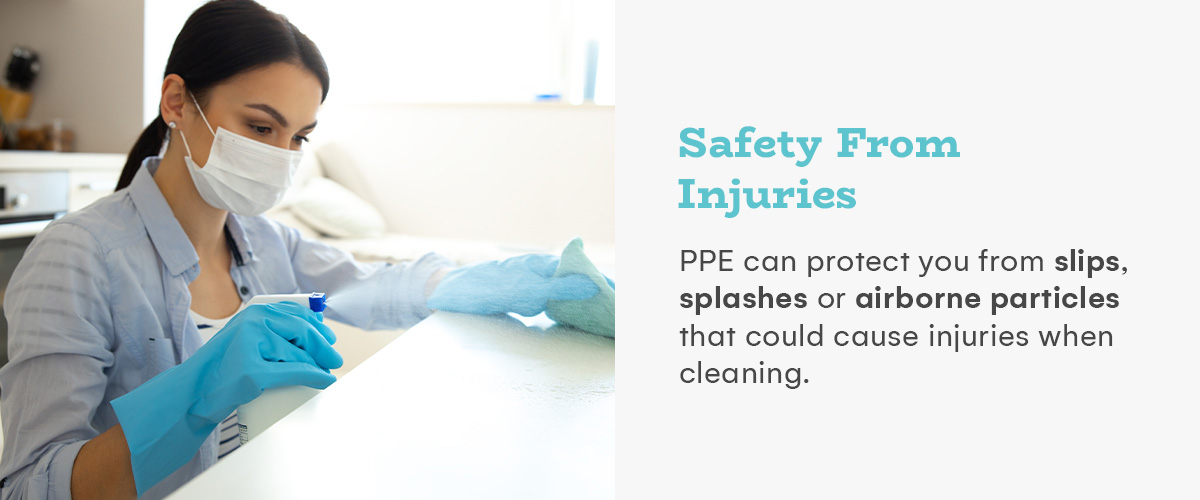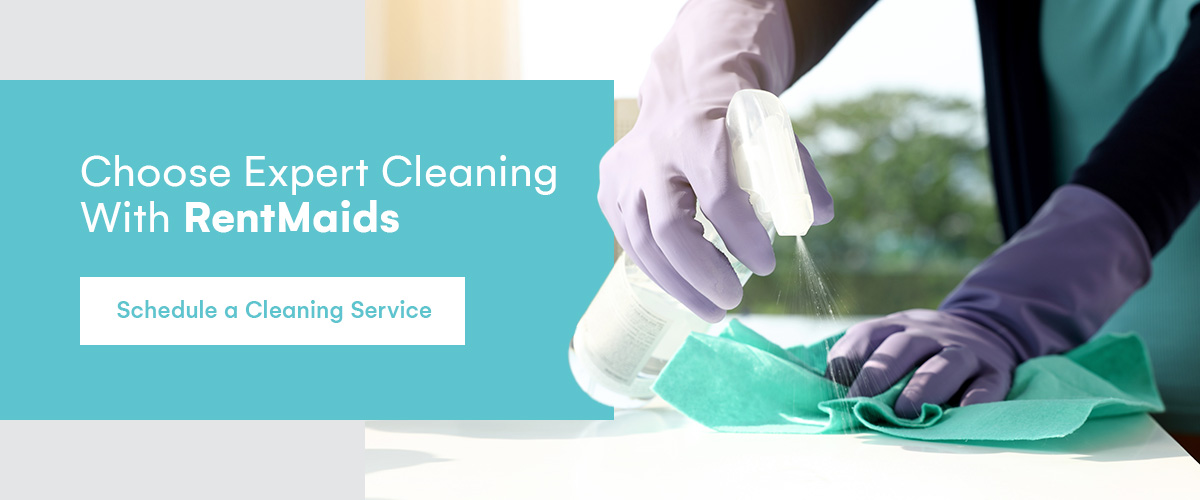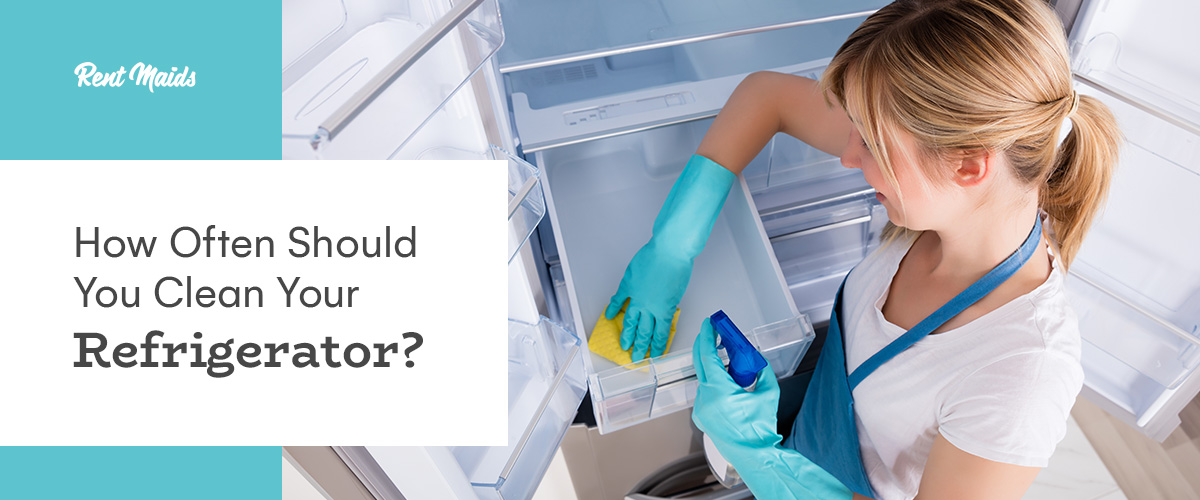
The Critical Role of PPE in Home Cleaning
Personal protective equipment (PPE) is an important aspect of home cleaning. From chemical splashes to allergen exposure, PPE protects against potential hazards in even the smallest cleaning tasks. It can also prevent the spread of germs throughout a home, keeping your family safe from illness. Whether you’re doing regular cleaning projects or completing a one-off task, use personal protective equipment for cleaning your home or apartment without compromising your health or well-being.
What Is PPE?
Personal protective equipment, commonly known as PPE, refers to any clothing or accessories that protect you from health and safety risks. PPE creates a barrier between the wearer and environmental hazards like chemicals, airborne particles, biological contaminants or physical objects that could cause injuries or sickness.
Each piece of PPE serves a specific purpose. For example, gloves protect hands from contaminants and injuries, while masks filter out airborne pathogens. In professional settings, health and safety organizations often establish and regulate PPE standards to ensure maximum protection in hazardous environments. In the home, PPE can be used when cleaning with specific chemicals or doing home improvement projects that involve dust or debris.
The Importance of PPE in Home Cleaning
PPE is a first line of defense against chemicals, contaminants and airborne particles — safeguarding your health while cleaning your home or apartment. Use PPE for the following reasons:
Protection Against Chemicals
When cleaning around your home, you’ll most likely interact with some type of chemical in the detergents or disinfectants you use. These chemicals can be harmful if you inhale them or they come in contact with your skin. PPE such as gloves and goggles can protect your skin and eyes from the harsh cleaning agents that lead to burns, irritation or damage — especially when there’s a risk of splashing liquids.
At the same time, masks will filter out fine particles that could be released into the air when cleaning, preventing you from inhaling them.
Prevention of Illness
PPE is essential when cleaning areas that could be contaminated with pathogens. For example, the flu virus can survive on surfaces for up to 48 hours, and these germs can easily spread from person to person when they come in contact with them. For this reason, it’s important to use PPE when disinfecting surfaces like countertops, doorknobs and other high-touch areas to prevent the spread of germs and illness throughout your home.
Barrier From Contaminants
Cleaning can also stir up dust and pet dander, which can lead to respiratory issues or allergic reactions. PPE can protect you by creating a barrier between yourself and the spread of contaminants on surfaces, while masks can reduce the inhalation of dust, mold spores and allergens.
Skin Irritation Avoidance
Certain chemicals can lead to burns, rashes or allergic reactions — making it important to wear PPE to protect your skin. PPE, such as gloves, can also shield your hands from prolonged exposure to water and detergents, preventing dryness, cracking and dermatitis. This crucial cleaning PPE can also provide a barrier from rough surfaces, scrubbing actions or abrasive cleaning tools that irritate the skin.
Safety From Injuries

PPE can protect you from slips, splashes or airborne particles that could cause injuries when cleaning. For example, safety footwear offers a better grip on wet floors, reducing the risk of falls. At the same time, high-quality masks or respirators can prevent you from inhaling particles from powders or aerosolized chemicals that lead to lung irritation.
6 Essential Types of PPE
When choosing PPE for cleaning, consider the specific task you’ll be working on so you get adequate protection. Proper fit and comfort are also critical. If it doesn’t fit well, you might not have the proper protection. Additionally, ill-fitting clothes could trip you up while you work. Double-check everything for snug, secure fits without pinching. Several types of crucial cleaning PPE can help you when cleaning your home or apartment:
1. Gloves
Perhaps the most common type of PPE in home cleaning, gloves are critical in protecting you from chemicals and punctures. Wearing gloves can also prevent you from touching biohazardous materials directly. Various glove materials, from nitrile and vinyl to latex and rubber, offer different levels of protection against chemicals and punctures.
- Nitrile: Nitrile gloves are often good for people with latex allergies. They’re durable, puncture-resistant and chemical-resistant but can also cause allergies.
- Vinyl: Vinyl is ideal for smaller jobs but can cause irritation for anyone with vinyl allergies.
- Latex and rubber: Latex gloves protect from most household cleaners and are available in thicker, reusable pairs to reduce waste. However, they aren’t appropriate for people with latex allergies.
For tough jobs like steam cleaning, you’ll need thick gloves to prevent burns and injuries. Remember to replace your gloves when changing to different cleaning activities, such as moving from toilet areas to other tasks.
2. Masks or Respirators
Masks range from basic cloth coverings to advanced respirators. These crucial cleaning PPE are helpful when working in areas with dangerous chemicals or other airborne hazards. Disposable surgical masks or reusable cloth masks with filters can protect you from dust and aerosol cleaners.
At the same time, the more advanced KN95 mask has a 95% filter efficiency, offering a high level of protection in hazardous areas with a lot of smoke, dust, pollen or airborne particles like bacteria, germs and viruses.
Use respirators for tasks with strong chemicals or lots of dust. These filter air and protect your lungs better than standard face masks.
3. Goggles
Our eyes are delicate, making eye protection critical when cleaning around the house since even the mildest cleaners can pose safety risks due to splashing. By using goggles, you can protect your eyes from any tasks that stir up dust, dirt and other particles. Medical-grade safety goggles or face shields can protect you from accidental chemical splashes during more intense cleaning activities.
4. Aprons
Waterproof aprons or gowns protect the body from spills and splashes when using liquids during home cleaning. Biohazard suits or aprons can also be helpful when cleaning up particularly messy materials. Aprons range from basic ones below the waist to commercial ones that cover the entire body and hang around the neck. They also offer a place to store cleaning items like sprays and cloths in the pockets as you complete various tasks.
5. Shoe Covers
When cleaning around the home, you’ll typically use water and other wet substances to clean surfaces and floors. Disposable slip-resistant shoe covers can minimize the risk of slip and fall accidents. They also keep floors clean and prevent the spread of dirt and germs across different areas of the house — with covers that conveniently go over your existing shoes or boots.
6. Additional Protection
You might need additional protection for some tasks. Here’s some PPE you may want for more intense cleaning tasks:
- Hearing protection: Loud cleaning equipment might hurt your ears — use ear protection like earplugs to protect your ears from loud sounds.
- Knee pads: If you’re cleaning on your knees for a long time, use knee pads. They cushion and support your knees when you’re scrubbing on the ground.
- Hair coverings: You might want to protect your hair from chemicals and dust with hair caps. Hair nets also keep your hair out of your face while you work.
Choose Expert Cleaning With RentMaids
Remembering your PPE when cleaning around the home or apartment is crucial. Germs, allergens, chemicals and airborne particles can compromise our health and safety, making it important to suit up before even the smallest cleaning jobs. If you’re too short on time to clean or simply not up for the task, turn to our residential maids for professional housekeeping services. We’ll keep your home organized with personalized cleaning solutions in every room.
With our easy online booking process, you get convenient housekeepers whenever and wherever you need them. Use our calculator today to schedule maid services and receive an instant cleaning estimate!

